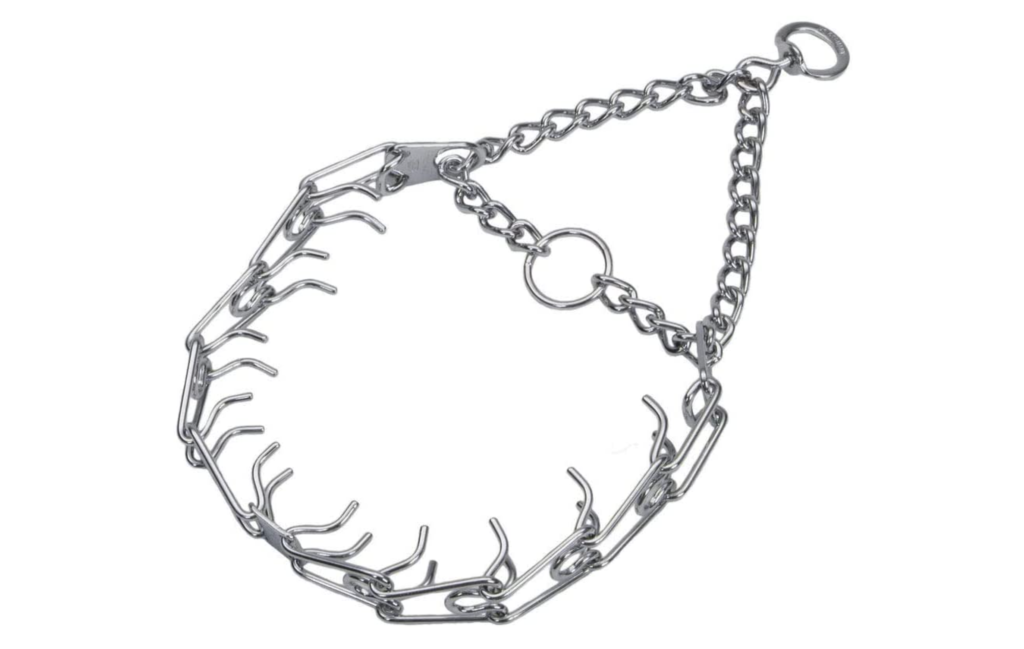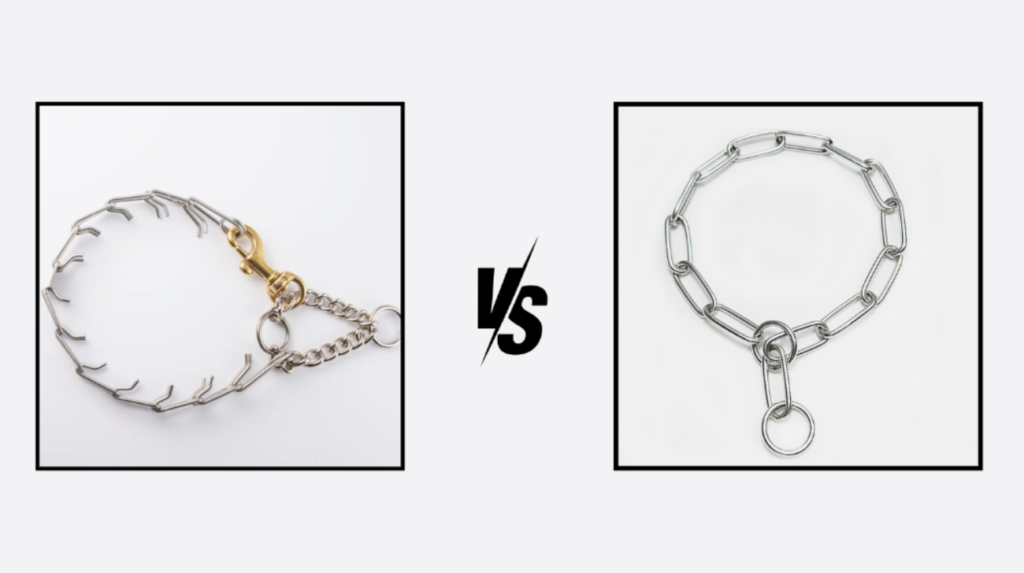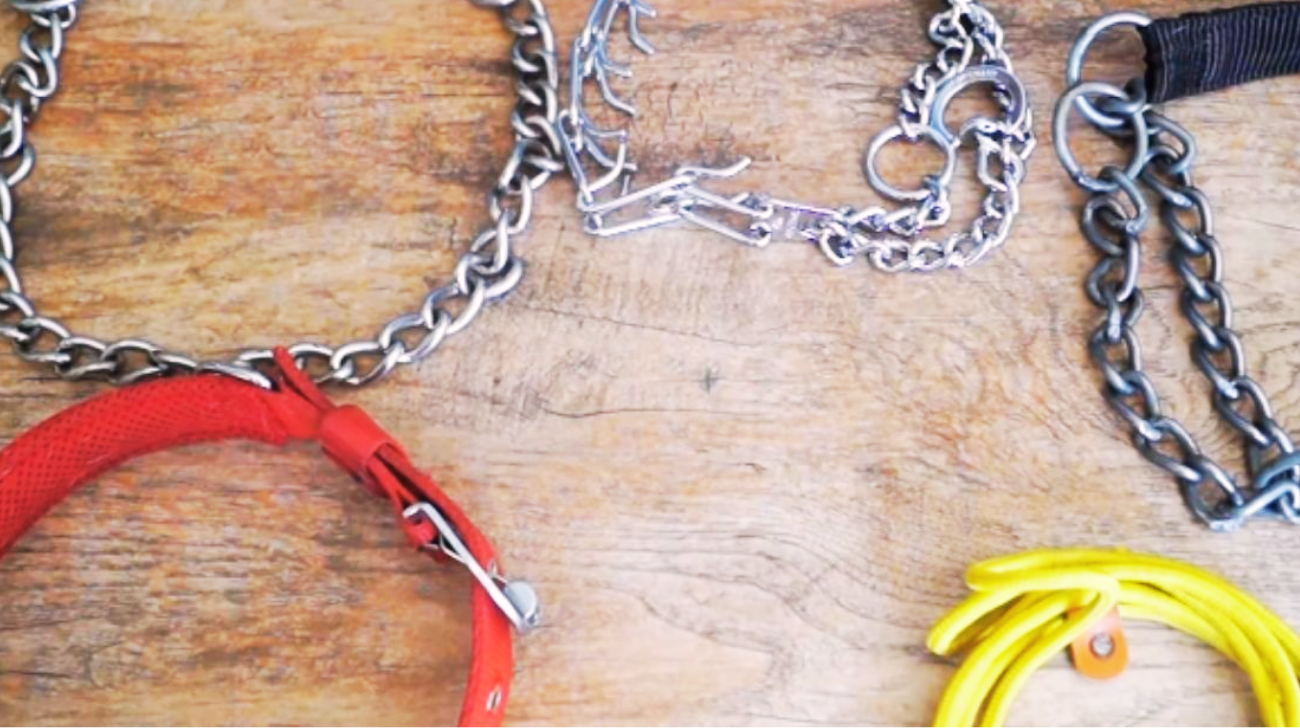In a surprising turn of events, the Toronto City Council recently repealed its ban on prong and choke chain collars, just weeks after the regulation was implemented. The decision, spurred by public concern and division within the council, highlights the complexities of balancing animal welfare, public safety, and the needs of pet owners.
This blog delves into the controversy surrounding the ban, why it was overturned, and what this means for dog owners and animal advocates moving forward. Check out the best dog collars for Border Collie to find durable, stylish, and comfortable options for your active dog.
Blog Highlights
ToggleThe Initial Ban: What Was It About?
The ban on prong and choke chain collars was part of Toronto’s efforts to modernize and strengthen animal welfare policies. These tools, often associated with aversive training methods, were prohibited due to concerns about potential harm to dogs.

What Are Prong Dog Collars and Choke Chains?
- Prong Collars: Designed with inward-facing metal prongs, these collars exert pressure on a dog’s neck when pulled. Advocates argue they provide controlled corrections, while critics claim they can cause pain or injury.
- Choke Chains: Made of metal links, choke chains tighten around a dog’s neck when tension is applied to the leash. They have been widely criticized for causing respiratory issues, neck injuries, and psychological stress.
The ban aimed to promote the use of positive reinforcement training methods, aligning with a growing global movement towards more humane dog training practices. For guidance on choosing the right collar size for an Airedale puppy, check out this detailed guide.
Why Was the Ban Controversial?
The ban was met with mixed reactions from dog owners, trainers, and animal welfare advocates. See the video for better understanding:
Support for the Ban
- Animal Welfare Concerns: Many animal advocates applauded the ban, arguing that prong collars and choke chains are outdated and inhumane.
- Injury Prevention: Critics of these tools pointed to research suggesting they can cause physical harm, such as neck injuries, tracheal damage, and nerve issues.
- Psychological Impact: There were concerns about the stress and fear these tools can induce in dogs, potentially leading to long-term behavioral issues.
Opposition to the Ban
- Training Necessities: Some dog trainers and owners contended that these tools are effective for managing certain behavioral issues, especially in large or strong-willed breeds.
- Lack of Alternatives: Opponents argued that banning these tools without providing viable alternatives could make it harder for some owners to safely manage their dogs.
- Personal Choice: Many viewed the ban as an overreach, infringing on the rights of responsible dog owners to choose appropriate training methods.
Why Was the Ban Overturned?
Acknowledging the widespread division, Councillor Cesar Palacio, who chairs the city’s municipal licensing and standards committee, made a motion to rescind the ban on prong and choke chain collars. This motion passed during a city council meeting, reflecting the ongoing debate about the appropriate use of these tools.

Key Factors Behind the Repeal
- Public Backlash: Dog owners and trainers voiced their concerns, highlighting the need for these tools in specific situations.
- Council Division: The lack of consensus among council members signaled the need for further discussion and consultation.
- Call for Public Input: The council decided to prioritize public consultation, aiming to better understand the perspectives of all stakeholders before making a final decision.
What Happens Next?
The repeal of the ban does not signify an end to the discussion. Toronto City Council has tasked city staff with conducting public consultations to gather opinions on the use of pronged collars and choke chains. For insights on whether Airedales are good off-leash, explore this comprehensive article.
What Public Consultations Aim to Achieve
- Balanced Policy: Ensure that future regulations consider the needs of both animal welfare advocates and dog owners.
- Educating Pet Owners: Promote awareness of the potential risks and benefits of various training tools.
- Exploring Alternatives: Encourage the adoption of humane training methods while providing practical solutions for challenging cases.
The Debate: Are Prong and Choke Chain Collars Necessary?
The controversy surrounding prong collars and choke chains highlights a broader debate about training methods and animal welfare.

Arguments in Favor
- Effective for Strong Breeds: Proponents argue these tools provide better control over large or reactive dogs, particularly in high-stress environments.
- Tool Misuse vs. Tool Design: Supporters claim that injuries occur primarily due to misuse, not the tools themselves. Proper education and training are seen as key to safe use.
- Temporary Solutions: Many trainers advocate for these tools as short-term solutions while transitioning dogs to more humane alternatives.
Arguments Against
- Risk of Injury: Studies show that prong collars and choke chains can cause physical harm, including skin abrasions, nerve damage, and respiratory issues.
- Behavioral Harm: Critics highlight the psychological effects, such as increased anxiety, fear, and aggression.
- Availability of Alternatives: Positive reinforcement methods and tools like harnesses and head collars offer safer ways to train dogs effectively.
Discover the benefits of using a harness by reading this guide on should a Collie wear a harness.
The Broader Implications
The council’s decision to overturn the ban has sparked broader conversations about the responsibilities of pet ownership, ethical training practices, and the role of government in regulating these matters.

For Dog Owners
- The repeal provides flexibility in choosing training tools but underscores the importance of using them responsibly.
- Owners are encouraged to educate themselves about humane training techniques and consult professionals when necessary.
For Animal Advocates
- The decision reinforces the need for ongoing advocacy to promote humane alternatives and raise awareness about the risks associated with prong collars and choke chains.
For Policymakers
- The repeal highlights the challenges of creating animal welfare laws that balance public opinion, scientific evidence, and practical considerations.
Looking Ahead: Finding Common Ground
The repeal of Toronto’s ban on prong and choke chain collars is not the final word on the matter. Instead, it opens the door for further discussion, public engagement, and potential compromise. Learn if Dachshunds need special collars to provide the right support and comfort for their unique body shape.
As the city moves forward with public consultations, all stakeholders must approach the debate with an open mind and a shared commitment to improving animal welfare. By fostering a collaborative dialogue, Toronto has the opportunity to set a precedent for balanced and effective pet ownership policies that benefit both animals and their owners. Information gathered from: The star.








